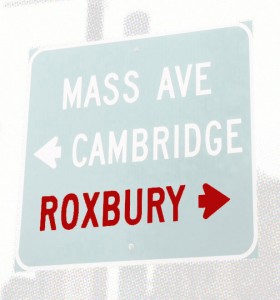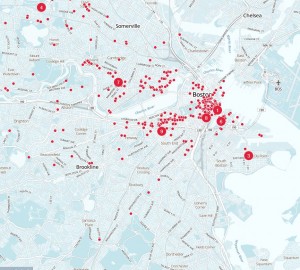Building a ‘Smarter’ Inner City
-
-
slice.mit.edu
Filed Under
Recommended
After 12 years as an architect, Gilad Rosenzweig MCP '13 knew he wanted to work on a larger scale. “Not larger buildings,” he says, “but to be involved in the development and improvement of cities.”
Rosenzweig saw his opportunity in Roxbury’s Dudley Square. Once known as Boston’s “second downtown” the neighborhood is currently among the poorest in the city.

“I was doing some work in the neighborhood on the nonprofit development side and noticing the impact that development had in the neighborhood. It might be good for physical qualities, but not necessarily for people who live there,” he says.
This prompted his idea for Smarter in the City: a high-tech incubator for inner city neighborhoods.
Rosenzweig sees Smarter in the City as a tool to improve neighborhoods from the inside out. According to his website, “We are specifically addressing the lack of opportunities for computer science and digital media entrepreneurs in lower-income neighborhoods and minority communities.”
To ensure that Dudley Square residents benefit from Smarter in the City, Rosenzweig engaged with community members and local politicians to get the word out. “I thought ‘what is the big change here and who needs to be involved?’” he explains.
Set to open its doors in July, Smarter in the City’s first class will have four startups—businesses ranging from urban journalism to a social network. Ideally, as each startup expands, the new jobs created will be filled by residents of neighborhoods like Roxbury, Mattapan, and Dorchester.
 A glance at where statups are located in Greater Boston. Credit: Techscence
A glance at where statups are located in Greater Boston. Credit: Techscence
“You don’t bring people from outside to change the community. You change it from inside. It all comes down to median income and education—the startup tech industry can deliver on both,” Rosenzweig says.
Rosenzweig, who is getting support from the MIT Venture Mentoring Service, credits his coursework at MIT’s Department of Urban Studies and Planning for his problem-solving approach to Smarter in the City. He says, “My ideas are coming both from the community and economic mindset, but not doing one without the other.”







